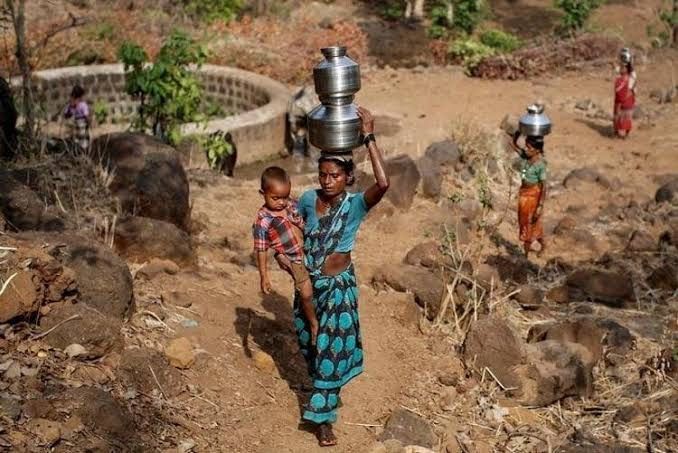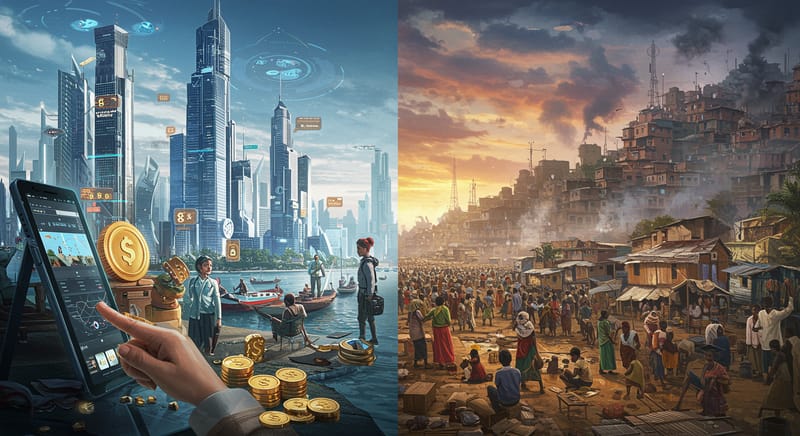The Brewing Storm: Water Scarcity and the Future of Global Conflict
Water, a fundamental resource that forms the very basis of life, is rapidly becoming a contested asset across the world. As an essential ingredient for agriculture, industry, and human sustenance, dwindling water supplies are beginning to stoke the embers of global conflict, leading many experts to fear that water scarcity

Water, a fundamental resource that forms the very basis of life, is rapidly becoming a contested asset across the world. As an essential ingredient for agriculture, industry, and human sustenance, dwindling water supplies are beginning to stoke the embers of global conflict, leading many experts to fear that water scarcity may be the primary catalyst for wars in the 21st century.
A Deepening Crisis
Experts have long predicted that water scarcity would become one of the most pressing issues of the century. Reports from the United States Intelligence Community have repeatedly underscored the strategic importance of water resources, warning that overuse, pollution, and climate change could lead to water becoming a cause of regional conflicts or even full-scale wars.
Water scarcity is already a reality for numerous countries, particularly in arid regions like the Middle East and North Africa. Here, climate change exacerbates existing water stress, and tensions have been growing over access to water resources. Countries heavily reliant on rivers flowing from abroad, like Egypt with the Nile, are particularly vulnerable.
The Nexus of Food Security
Water scarcity also threatens food security, as agriculture accounts for 70% of all freshwater withdrawals globally. Any disruption to these water supplies can have disastrous impacts on a country's ability to feed its people. Water shortages can decimate crop yields, leading to food price increases, civil unrest, and political instability.
Droughts and erratic rainfall, intensified by climate change, have already led to such scenarios in various parts of the world. For example, researchers have linked the drought that struck Syria from 2007 to 2010, which was the most severe in the instrumental record, to the civil war that followed.
The Road to Resolution
Addressing the imminent water crisis requires a multidimensional approach. Better water management policies, water-saving technologies, and international cooperation are all crucial components.
Water management practices need to become more sustainable and efficient. This means investing in infrastructure to reduce water loss, promoting water-saving technologies, and implementing policies to encourage water conservation.
Global cooperation will be essential to manage transboundary water resources equitably and peacefully. Water diplomacy could play a key role in mitigating potential conflicts, promoting dialogue, and finding collaborative solutions to shared challenges.
A Future Shaped by Water
As freshwater supplies diminish, the risk of water scarcity triggering conflict becomes ever more real. Recognizing this, the international community must take urgent action to address this looming crisis. Failure to do so could see the age-old battle for resources take a new and devastating turn, with water at the heart of the struggle.
If managed effectively and cooperatively, water can be a source of cooperation rather than conflict. But the clock is ticking, and the world must act swiftly to avert a future where wars are fought over the precious life-giving resource of water.
The Tides of Change: A Future Shaped by Water Scarcity and Potential Solutions
As water scarcity becomes an increasingly pressing issue, the ways we use and value water are poised to undergo significant changes. In a future shaped by water shortages, rationing, and conflict, innovative solutions and strategies will be paramount to ensuring the availability of this essential resource.
A Thirsty Future
In this potential future, strict water rationing becomes the norm, with households allocated a specific quantity of water based on the number of occupants and their needs. Beyond the domestic sphere, industries that use substantial amounts of water, such as agriculture and manufacturing, are faced with stringent regulations and restrictions on their water usage. These measures aim to prevent wastage and promote the efficient use of water.
In cities, smart water meters become standard, giving individuals real-time data on their water consumption. This technology encourages water-saving habits and allows the quick detection of leaks or anomalies in water usage. The municipalities, on the other hand, utilize state-of-the-art water management systems to monitor the supply and demand of water accurately.
Prized Drops
As water becomes an even more precious commodity, rewards systems are introduced to encourage conservation. These incentives take many forms, such as discounts on utility bills for households that consistently stay below their allocated water quota. Corporations demonstrating efficient water usage and innovative water-saving strategies are given tax breaks and other incentives, propelling a wave of water-efficient technologies and practices.
Innovation and Adaptation
In agriculture, there is a massive shift towards more water-efficient practices. Precision farming techniques, which use technology to apply water and nutrients only where needed, become widespread. Drought-resistant crop varieties are developed and adopted widely. Vertical farming and hydroponics, which use significantly less water than traditional farming methods, also gain traction.
Water recycling and purification technologies also advance dramatically. Wastewater, once discarded, is now seen as a valuable resource. Advanced treatment plants become commonplace, turning wastewater into water clean enough for irrigation and even human consumption.
Global Cooperation
Transnational water agreements become more crucial than ever, as countries sharing water bodies work together to manage these resources equitably. International organizations play a pivotal role in arbitrating disputes and facilitating dialogue on shared water resources.
Water: The Defining Challenge of the Century
In the face of growing water scarcity, the future will demand adaptation, innovation, and cooperation. While this reality presents considerable challenges, it also offers opportunities to revolutionize the way we use and value water. By fostering efficient water use, developing new technologies, and promoting global cooperation, we can ensure that clean, abundant water remains within everyone's reach, thus securing a sustainable future for generations to come.




